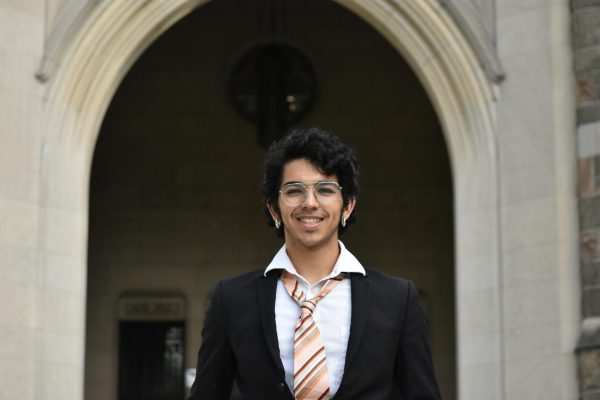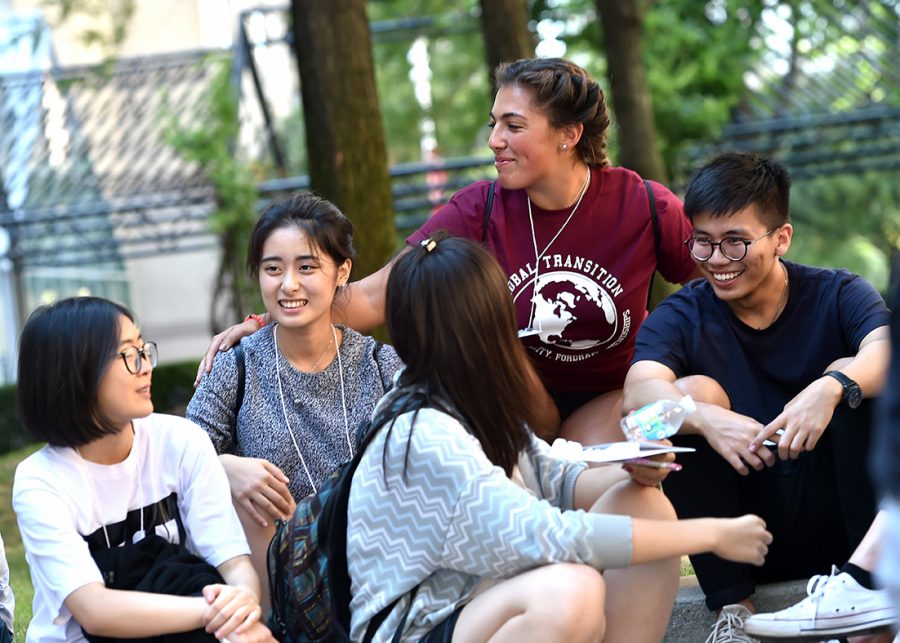USG’s New Financial Equity Bill for International Students
This proposal is aimed at helping international students afford Fordham.
On March 31, the United Student Government (USG) at Rose Hill passed a bill designed to provide more financial aid to international students. The bill, titled Expanding Financial Aid Access and Employment Opportunities International Students at Fordham University Rose Hill, introduces a new scholarship to provide full tuition and room and board costs for 15 international students on a yearly basis.
Work on the proposal began in November 2021 and lasted about five months before the bill got passed through USG. The bill was a collaborative effort between Santiago Vidal, USG Senator for the class of 2024, who wrote the main core of the proposal; Frank Velez, USG senator for the class of 2023, who conducted the Peer Aspirant Research portion of the bill; and Keegan Roeder, USG senator for the class of 2023, who assisted with writing the “Benefits” section of the bill’s primary articles.
The bill is divided into three primary articles, or requests. The first of these is the establishment of The Fordham Leadership Award for International Students, aforementioned to “help fully cover the tuition and room & board costs for the studies of 15 international students in the next four years (each year) to help increase the numbers of international enrollment to 2016 levels (the highest in Fordham’s admission history),” as the bill reads.
The second request listed in the bill, titled Financial Aid Appeal for International Students, aims to do exactly what it sounds like: expand “the Financial Aid Appeal opportunities for international students within the processes of the office respective to those granted to domestic students,” as stated in the official proposal.
The third and final request written in the bill calls for the Student Employment for International Students, which requests “the reservation of need-based international student on-campus employment opportunities,” according to the passed bill.
Vidal spoke about the inspirations behind the bill and what motivated him to write it:
“I wanted to help in the work availability and the work options for international students on campus [and] expand financial access to international students to Fordham University, considering Fordham is the eighth-most expensive school in the country,” Vidal said.
For Vidal, the financial cost of Fordham is one of the most significant factors driving international students away from attending the university.
“There is a financial inequity of international students on campus,” Vidal said. “Numbers of international students have drastically decreased from 2017 to 2021 from 10.2% to 5.4%. We have cut half of our international community for several reasons.”
After various meetings with the offices of Financial Aid and Admissions, Vidal found that, besides visa restrictions (which Fordham University can’t interfere with), lack of financial access is the largest push factor.
As part of the Peer Aspirant Research portion of the proposal, the bill’s authors found that Fordham University offers less financial aid to its international students than most other universities based on proportional data.
“There are eight scholarships of need-based aid for American students, while only one for international students,” said Vidal. That one scholarship is known as the Faber Award. “It can go up to tuition, but it doesn’t cover room, food, expenses or healthcare.”
International students at Fordham are required to pay the $3,200 yearly fee for health insurance despite insurance status in their home country.
The waiver option available to domestic students is not open to international students.
While conducting the Peer Aspirant Research, the team also discovered Seattle University’s method of providing aid to international students. As it reads in the proposal presented to USG, Seattle University’s protocol: “Sullivan Leadership Award is a full scholarship that covers tuition, room and board for each of the four years of undergraduate study at Seattle University and is awarded to nine incoming freshmen each year.”
The proposal for aid at Fordham took inspiration from the Sullivan Leadership Award, expanding the number of recipients from nine to 15 to match the ratio of international to domestic students between the universities. The original plan was to include more than 15 recipients, however, in order to compromise on the financial cost of implementing the proposal, the team decided to keep the number at just 15.
“There was some pushback in the USG because it’s a $1.1 million proposal every year, and increasing with every year that passes, so at the fourth year, implementation is going to be $4.4 million because there will be 60 international students fully funded by the scholarship,” said Vidal.
To avoid student pushback about moving money from domestic students to fund international students, the team decided that the best option would be to take the money from the “Cura Personalis” campaign, which Vidal says offers $350 million for university investments.
“There was a bit of pushback because people in the USG believed this was going to take funds from domestic students to be given to international students,” commented Vidal. “For me, it was a comment that never should have taken place, because, when you evaluate that 95% of financial aid is going to domestic students and only 5% is going to international students and when you compare the ratios, it’s not even quantifiable.”

Sebastian Diaz is a senior from Chapel Hill, N. C. who is double majoring in journalism and film. After starting as a news reporter for The Fordham Ram...









































































































































































































